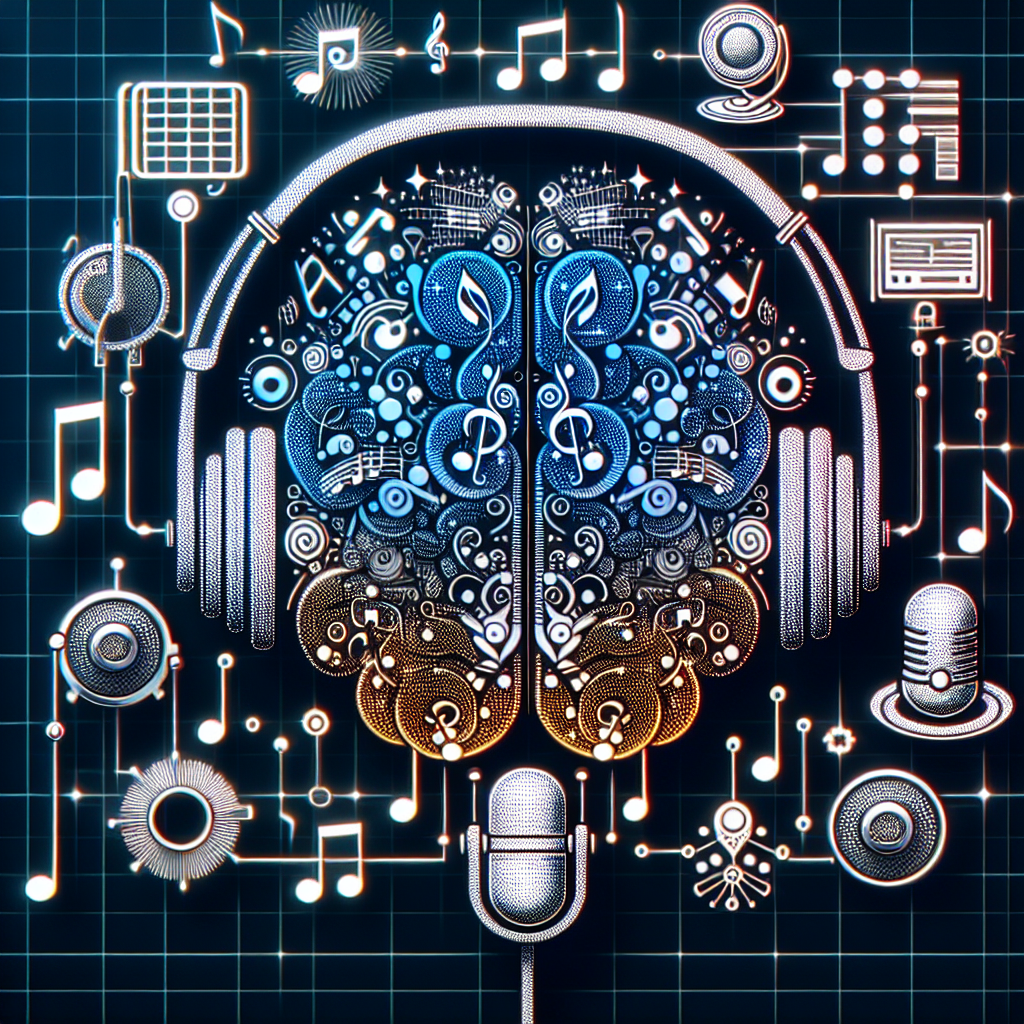Music journalism has always played a crucial role in shaping the music industry. From album reviews to artist interviews, music journalists have been instrumental in informing and influencing music lovers around the world. However, with the advancements in artificial intelligence (AI) technology, the landscape of music journalism is rapidly changing.
AI has already begun to revolutionize various industries, and music journalism is no exception. AI algorithms can now analyze vast amounts of data to predict music trends, identify emerging artists, and even generate music reviews. This technology has the potential to streamline the music journalism process, making it faster and more efficient than ever before.
One of the most significant ways AI is impacting music journalism is through the creation of automated content. AI algorithms can now generate music reviews, artist profiles, and even news articles without human input. This has raised concerns among music journalists about the future of their profession. Will AI eventually replace human journalists? Or will it enhance their work and provide new opportunities for creativity and innovation?
Some argue that AI will never be able to replicate the human experience of music journalism. While AI algorithms can analyze data and generate content, they lack the emotional intelligence and creative intuition that human journalists bring to their work. Music journalism is not just about reporting facts and figures; it’s about telling stories, sharing insights, and connecting with audiences on a deeper level. These are qualities that AI cannot replicate.
However, AI can still play a valuable role in music journalism by assisting human journalists in their work. For example, AI algorithms can help journalists analyze data, identify trends, and uncover new stories. They can also help journalists reach a wider audience by personalizing content and optimizing distribution channels. In this way, AI can enhance the work of music journalists and provide new opportunities for collaboration and innovation.
Another way AI is shaping the future of music journalism is through personalized content recommendations. AI algorithms can now analyze users’ listening habits, preferences, and behavior to recommend music that they are likely to enjoy. This has the potential to revolutionize the way music is discovered and consumed, as users are presented with personalized recommendations tailored to their tastes.
AI can also help music journalists better understand their audience and create content that resonates with them. By analyzing user data and feedback, journalists can gain insights into what their audience wants and tailor their content accordingly. This can help journalists attract more readers, increase engagement, and build a loyal following.
However, there are also concerns about the ethical implications of AI in music journalism. For example, AI algorithms may be biased or discriminatory in their analysis of data, leading to inaccurate or harmful content. There are also concerns about the impact of AI on job security for music journalists, as automated content creation could potentially replace human journalists in the future.
Despite these concerns, the future of music journalism with AI looks promising. As technology continues to evolve, there are new opportunities for innovation and collaboration between AI and human journalists. By leveraging the strengths of both AI and human intelligence, music journalism can continue to thrive and evolve in the digital age.
FAQs:
Q: Will AI replace human journalists in music journalism?
A: While AI has the potential to automate certain aspects of music journalism, it is unlikely to replace human journalists entirely. AI lacks the emotional intelligence and creative intuition that human journalists bring to their work. Instead, AI can assist human journalists in their work by analyzing data, identifying trends, and optimizing content distribution.
Q: How can AI enhance the work of music journalists?
A: AI can enhance the work of music journalists by assisting them in analyzing data, identifying trends, and uncovering new stories. AI can also help journalists reach a wider audience by personalizing content and optimizing distribution channels. By leveraging the strengths of both AI and human intelligence, music journalism can evolve and thrive in the digital age.
Q: What are the ethical implications of AI in music journalism?
A: There are concerns about the ethical implications of AI in music journalism, such as bias and discrimination in data analysis. There are also concerns about job security for music journalists, as automated content creation could potentially replace human journalists in the future. It is important for journalists to be aware of these ethical considerations and to use AI responsibly in their work.
In conclusion, AI is reshaping the future of music journalism in exciting and innovative ways. While there are concerns about the impact of AI on job security and ethical considerations, there are also new opportunities for collaboration and creativity between AI and human journalists. By leveraging the strengths of both AI and human intelligence, music journalism can continue to evolve and thrive in the digital age.

